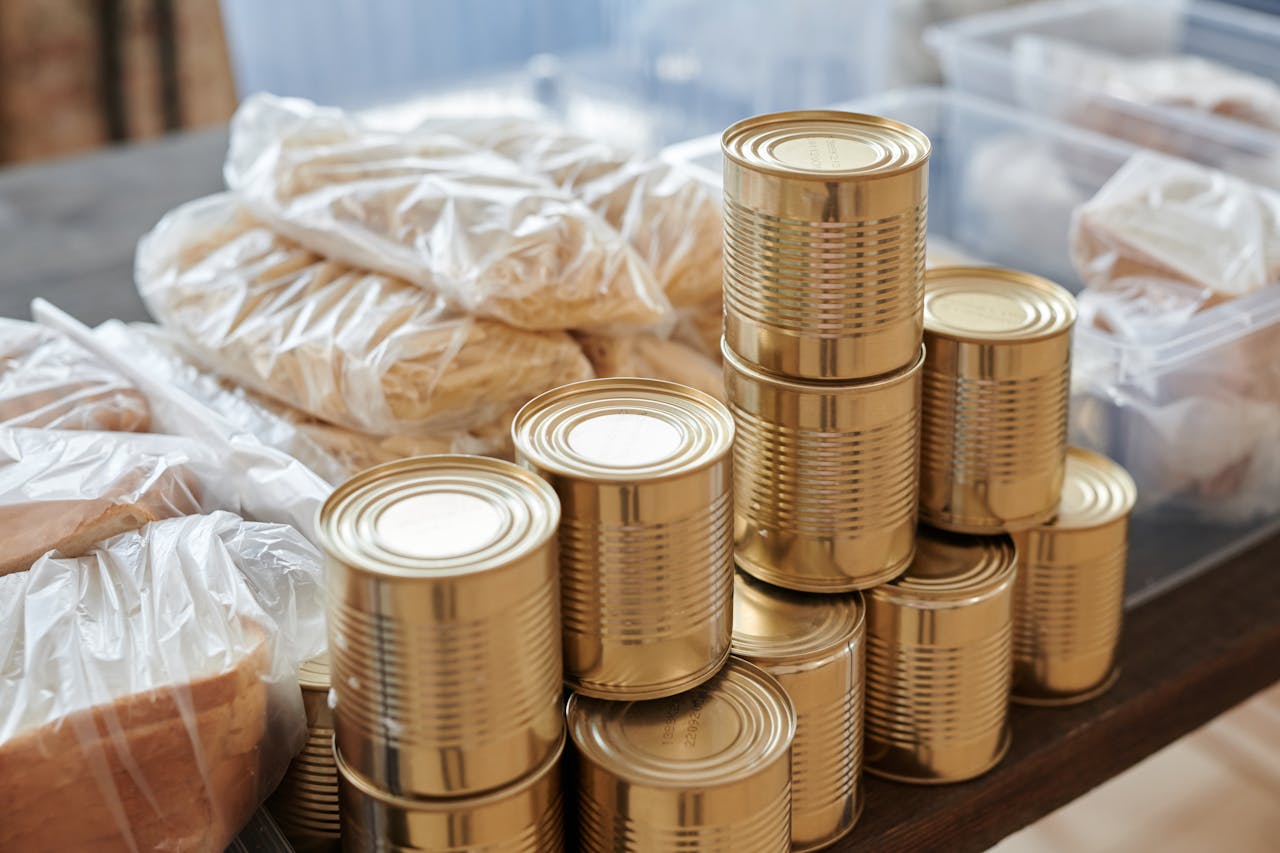If you’re like most shoppers, you probably have a shelf or two in your pantry dedicated to canned goods. They’re convenient, affordable, and seem to last forever. But not all canned products are as safe as they appear. Some can pose hidden health risks, while others may not be as nutritious as you think. Understanding which canned foods to avoid can help you make smarter choices for your family’s health and your wallet. Let’s dive into six canned products that look safe but shouldn’t be in your pantry.

Image Source: pexels.com
1. Canned Vegetables with Added Salt
Canned vegetables are a pantry staple, but many are loaded with sodium. While a little salt is fine, excessive sodium intake is linked to high blood pressure and heart disease. According to the American Heart Association, over 70% of Americans’ sodium comes from processed and restaurant foods, including canned goods. When you reach for canned green beans, corn, or peas, check the label for sodium content. Opt for “no salt added” or “low sodium” versions whenever possible. If you already have salty canned veggies, rinse them under water before cooking to remove some of the excess salt. Your heart will thank you!
2. Canned Soups with Preservatives
Canned soups are quick meals, but many are packed with preservatives and artificial additives. Ingredients like monosodium glutamate (MSG), potassium sorbate, and artificial flavors can be found in popular brands. While these additives help extend shelf life, they may cause headaches, allergic reactions, or digestive issues in sensitive individuals. The Mayo Clinic notes that some people experience symptoms after consuming foods with MSG. Instead, try making your own soup in bulk and freezing portions, or look for organic and preservative-free canned options.
3. Canned Fruit in Heavy Syrup
Canned fruit seems like a healthy snack, but if it’s packed in heavy syrup, you’re getting a hefty dose of added sugar. This extra sugar can contribute to weight gain, tooth decay, and an increased risk of type 2 diabetes. The Centers for Disease Control and Prevention recommends limiting added sugars to less than 10% of your daily calories. Instead of fruit in syrup, choose canned fruit packed in water or its own juice. Better yet, buy fresh or frozen fruit when possible for maximum nutrition and flavor.
4. Canned Meats with Nitrates
Canned meats like ham, corned beef, and some chicken products often contain nitrates and nitrites as preservatives. These chemicals help prevent bacterial growth, but they’ve also been linked to an increased risk of certain cancers, especially colorectal cancer. The World Health Organization has classified processed meats containing nitrates as carcinogenic to humans. If you rely on canned meats for convenience, consider nitrate-free options or cook and freeze your own meats in advance. Always read the ingredient list carefully to avoid unwanted additives.

Image Source: pexels.com
5. Canned Pasta Meals
Canned pasta meals, like ravioli or spaghetti, are a childhood favorite for many, but they’re often high in sodium, sugar, and unhealthy fats. These meals are typically made with refined grains and offer little nutritional value compared to homemade pasta dishes. Plus, the sauces can contain artificial colors and preservatives. If you’re craving a quick pasta meal, try cooking whole-grain pasta and adding a simple tomato sauce with fresh or frozen veggies. It’s just as fast and much healthier for your pantry and your family.
6. Canned Fish with High Mercury Levels
Canned fish, such as tuna, is an excellent source of protein and omega-3 fatty acids, but not all canned fish is created equal. Some varieties, especially albacore (white) tuna, can contain higher levels of mercury, which is particularly concerning for pregnant women and young children. The U.S. Food and Drug Administration recommends limiting consumption of high-mercury fish and choosing lower-mercury options like canned light tuna, salmon, or sardines. Always check the label and vary your seafood choices to minimize mercury exposure.
Rethink Your Pantry for a Healthier You
It’s easy to assume that all canned products are safe and convenient, but a closer look at the labels can reveal some surprising risks. By being mindful of sodium, sugar, preservatives, and additives, you can make better choices for your pantry and your health. Remember, not all canned foods are bad—just be selective about what you keep on hand. Swap out the risky options for healthier alternatives, and you’ll be well on your way to a safer, more nutritious pantry.
What canned products have you decided to stop buying? Share your thoughts and tips in the comments below!
Read More
Why Store Brand Canned Goods Could Be Different Than You Think
23 States Impacted by Canned Beans Recall: Is Yours One of Them?

